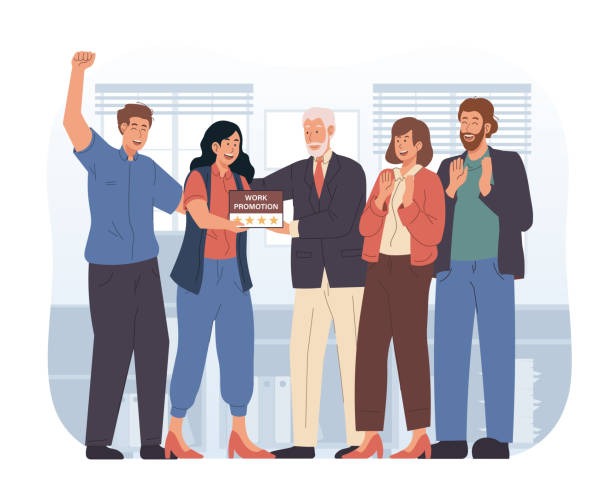A positive company culture drives team engagement, satisfaction, and overall growth. One of the most effective ways to create this kind of environment is through meaningful appreciation of employees, acknowledging their unique contributions beyond basic acknowledgments. When employers go the extra mile to make employees feel seen and valued, engagement, productivity, and morale soar across the organization. Employee appreciation is more than a feel-good initiative—it is a strategic investment in the human fabric of any business, and its effects ripple far beyond the surface. A positive company culture attracts talented individuals and empowers them to perform at their best.
Offering customized corporate appreciation gifts is a proven way to show individualized recognition. Personalized gestures and gifts are essential in fostering a company culture that values and acknowledges its team members’ unique strengths and achievements. These gestures create lasting impressions, fostering employees’ deeper engagement and a sense of belonging. When employee appreciation is a deliberate practice, it promotes a supportive, growth-focused workplace where employees feel motivated and empowered to do their best. When shared frequently and authentically, appreciation creates a culture of positivity that permeates all levels of the organization.
Authentic and timely personalized appreciation initiatives signal that employee well-being is a top priority, serving as a powerful differentiator in today’s competitive job market. They result in greater talent retention and consistent organizational progress. Companies reduce turnover and inspire innovation and loyalty by investing time and effort into meaningful recognition. Employees who feel cared for are more likely to advocate for their employer, contributing to a favorable external reputation that attracts high-caliber candidates and new business opportunities.
Understanding the Impact of Employee Appreciation
Consistent, meaningful recognition has profound effects on workplace satisfaction and performance. According to a study published in the Journal of Managerial Psychology, employees who feel valued at work report greater job satisfaction, stronger relationships with colleagues, and increased motivation to excel. Regular appreciation fosters an environment in which everyone feels seen and invested in the company’s mission, helping to reduce absenteeism and turnover while building stronger teams. When employees are overlooked, disengagement can spread—and high turnover costs companies time, resources, and continuity. In contrast, appreciation creates positive cycles of engagement and excellence that drive ongoing growth.
Strategies for Meaningful Employee Recognition
Formal recognition programs, such as “Employee of the Month” awards or achievement-based milestones, set clear performance standards and provide ongoing opportunities for employees to be acknowledged among their peers. These programs create visibility around company values and desired behaviors, setting a positive tone for the workplace culture. Regular recognition events and ongoing awards reinforce a sense of progress and belonging across the company.
Encouraging peer-to-peer recognition fosters camaraderie and positive behaviors, building trust and collaboration throughout the organization. This breaks down silos and promotes a more supportive, inclusive atmosphere. Companies can cultivate teamwork, creativity, and a shared commitment to success by fostering a culture where praise is freely given.
Celebrating milestones and achievements, such as work anniversaries, project completions, or personal milestones, reminds employees that their dedication is valued and noticed. These gestures are morale boosters and opportunities for leaders to connect with team members. Celebrating milestones also offers natural opportunities to reflect on successes, inspire future goals, and solidify a sense of shared achievement.
Providing opportunities for professional growth goes beyond acknowledgment and gifts. Access to training, mentorship, and career advancement programs fuels engagement and loyalty, motivating team members and enhancing the workforce’s overall skill set and adaptability. Offering personalized corporate gifts, tailored to individual preferences or significant achievements, exponentially increases the impact of recognition. These items deepen connections and reinforce the company’s genuine value for each individual.
Integrating Appreciation into Daily Operations
Embedding appreciation into the rhythm of daily life at work is crucial. Leaders can make appreciation a habit by openly recognizing exceptional efforts in meetings, writing thank-you notes, or expressing gratitude during informal conversations. Companies that provide forums or platforms for employees to share recognition with peers naturally amplify these positive practices, creating a ripple effect of support and encouragement. Integrating appreciation into daily routines—such as starting meetings with shout-outs or closing the week with a round of gratitude—reminds everyone that contributions matter every day, not just during scheduled events.
The Role of Leadership in Fostering Appreciation
Leadership sets the tone for company culture, especially in employee recognition. When managers and executives prioritize gratitude, model genuine appreciation, and empower others to follow suit, these behaviors are ingrained into the organization’s DNA. Investing in training for leaders—helping them develop recognition and communication skills—embeds gratitude at every level, ensuring consistency and authenticity in every interaction. Strong leaders listen attentively to their teams, tailor recognition efforts to individual preferences, and seek regular feedback on how appreciation can be improved, demonstrating that recognition is central to their leadership style.
Measuring the Impact of Employee Appreciation
Evaluating the success of appreciation programs is vital for continuous improvement. Organizations should regularly track indicators like employee engagement scores, retention rates, and feedback from pulse surveys. These data points create a feedback loop, guiding leaders on which initiatives resonate and where further investment or realignment may be needed. Meaningful recognition and actionable insights pave the way for a culture of continuous growth and satisfaction. In addition to quantitative data, companies can collect anecdotal feedback and monitor trends in employee morale to create a comprehensive picture of the impact of their recognition efforts.
Conclusion
Intentional, ongoing employee appreciation is a cornerstone of thriving company culture. By establishing purposeful recognition programs, encouraging peer acknowledgment, marking milestones, supporting professional growth, and offering individualized corporate appreciation gifts, organizations send a powerful message: every team member’s unique contributions matter. Companies that embrace these strategies nurture happier, more engaged teams and set themselves up for enduring success in a competitive world. Businesses prioritizing appreciation are more resilient, adaptable, and better positioned to achieve their goals through engaged and loyal employees.

